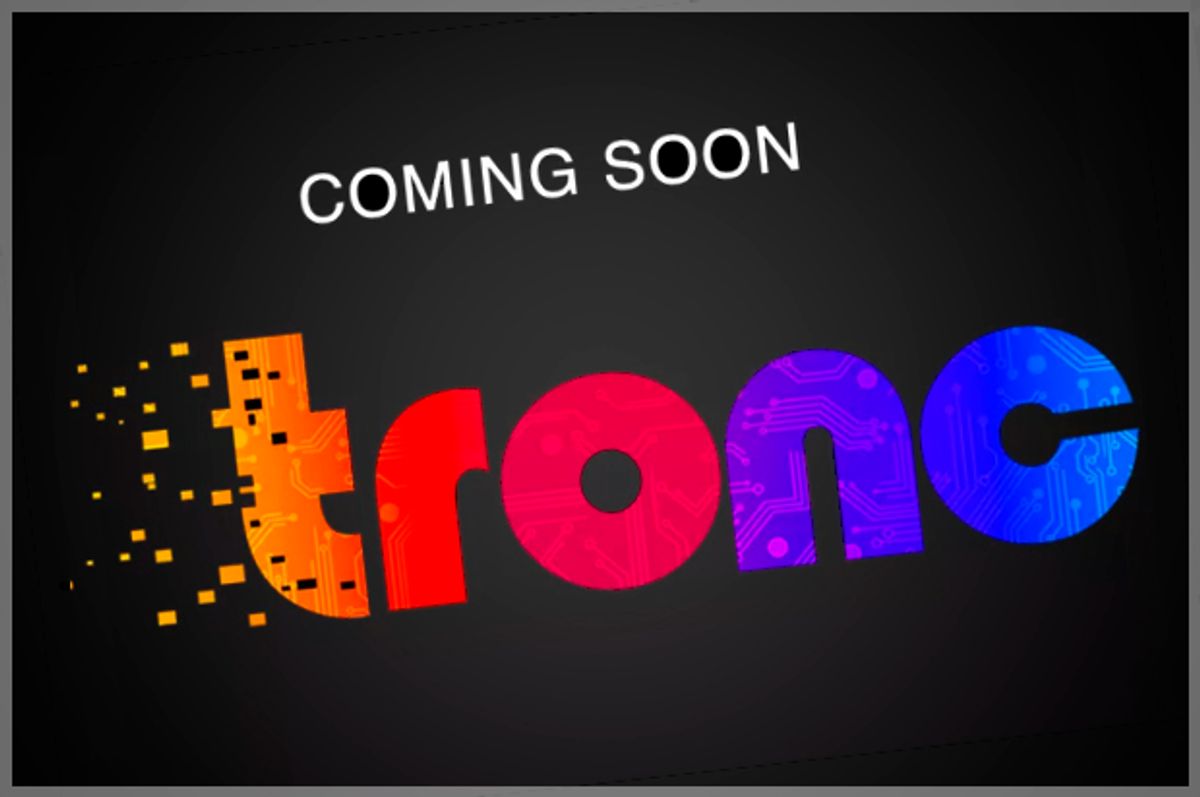Well, that sure got weird, didn’t it? Tribune’s takeover of what used to be called Times-Mirror was messy when it started, a decade and a half ago, and has gotten worse every few years: This is the company, after all, that took over several great newspapers, crowed about “synergy,” and made a few legendary editors so uncomfortable that they left their posts. (One of them was Dean Baquet, who's now executive editor at the New York Times.) And they sold their papers to Sam Zell, who had no background in newspapers and made an even bigger mess of things before filing for Chapter 11. Last fall, the company put Tribune Tower, where its original newspaper is based, up for sale.
But now Tribune has a new trick: It has renamed itself tronc – a term that means, in French, “poor box,” and if modulated to “trunk,” something worse. According to Tribune’s current chair, Michael Ferro – who was invited onto the board by former CEO Jack Griffin, whom he fired -- this is a bold step into the future. Here’s a corporate release:
Tribune Publishing Co. (NYSE:TPUB) today announced that the Company will change its name to tronc, Inc., a content curation and monetization company focused on creating and distributing premium, verified content across all channels. tronc, or tribune online content, captures the essence of the Company’s mission. tronc pools the Company’s leading media brands and leverages innovative technology to deliver personalized and interactive experiences to its 60 million monthly users. The name change will become effective on June 20, 2016.
And here’s a quote from Ferro:
“Our industry requires an innovative approach and a fundamentally different way of operating. Our transformation strategy – which has attracted over $114 million in growth capital – is focused on leveraging artificial intelligence and machine learning to improve the user experience and better monetize our world-class content in order to deliver personalized content to our 60 million monthly users and drive value for all of our stakeholders. Our rebranding to tronc represents the manner in which we will pool our technology and content resources to execute on our strategy.”
Feeling a bit dizzy from all the corporate buzzwords here – monetization, content, branding – in just two short paragraphs? Wondering how this could have happened?
Tribune has been in the middle of a tumultuous period, having recently rebuffed a takeover bit by Gannett, and now, possibly, trying to buy Gannett instead. (A shareholder’s lawsuit could lead to Tribune being purchased after all.) With newspapers continuing to lose ad revenue, some instability was inevitable, and some move deeper into the online world was likely. But “leveraging artificial intelligence and machine learning?” The word “newspapers” is never mentioned in the entire release, and “journalism” shows up only once, somewhere near the end. This is from the corporation that owns The Los Angeles Times, The Chicago Tribune, and The Baltimore Sun.
What does all of this mean for people hoping to get news from any of Tribune’s or, er, tronc’s properties? Ken Doctor on NiemanLab put it this way:
Ferro promises revolutionary change — and the porting of his tech/artificial intelligence smarts into the poor, dumb old newspaper biz — yet his ideas seem disconnected from getting people the news of the day. So a Ferro-led Tribune promises a weird kind of independence, but absolutely uncertain journalistic direction.
And as nasty as the Tribune vs. Gannett tensions are right now, this could still resolve with Gannett buying the chain.
As someone who grew up reading the Baltimore Sun, and worked for six years for the LA Times until right around the bankruptcy, I want these papers to survive as journalistic entities. They’re all, despite numerous waves of cuts and a very tough decade, doing some excellent work. The Sun, for instance, was named a Pulitzer finalist for both breaking news coverage and editorials after Freddie Gray’s death.
But it’s hard not to get around the realization that the best model for newspapers, these days, is for someone who cares about the actual journalism to buy them and run them with pride. If you can avoid a Sheldon Adelson getting involved, this can work far better than the kind of corporate nonsense we’re seeing here.
The Boston Globe (owned by the Red Sox owner John W. Henry) and Washington Post (owned by Amazon’s Jeff Bezos) have conflict-of-interest problems to worry about. They will get the occasional bad call from their owners. But take a look at either paper, or their websites, and hope that tronc’s employees and readers will someday be as lucky.

Shares